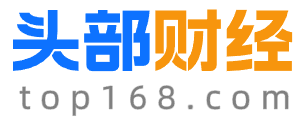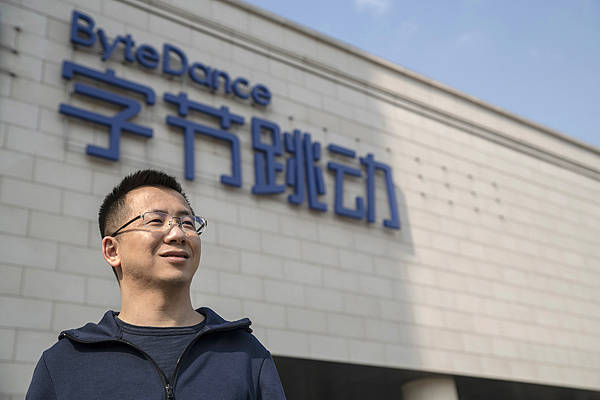

CFP
AsianFin -- The viral rise of TikTok hasn't just created internet celebrities—it has also minted China's wealthiest individual: ByteDance founder Zhang Yiming, whose net worth now stands at $57.5 billion, according to the Bloomberg Billionaires Index.
The 41-year-old software engineer, known for his reclusive nature, has surpassed Tencent's Pony Ma ($56.5 billion) to claim the top spot, marking a symbolic shift in China's tech hierarchy—from social gaming to algorithm-driven content.
Born in 1983 in Fujian province to civil servant parents, Zhang's name derives from a Chinese proverb about "surprising everyone with a first attempt"—a fitting foreshadowing of his career. After graduating from prestigious Nankai University in 2005 with a degree in software engineering, he cut his teeth at a travel startup, Kuxun, where he learned sales and management despite his engineering role.
A brief stint at Microsoft followed before he launched ByteDance in 2012, initially as an AI-powered news aggregator (Toutiao). But his real breakthrough came in 2016 with Douyin (TikTok's Chinese counterpart), which redefined social media through addictive, algorithm-curated short videos.
Unlike other tech moguls, Zhang is famously intoverted. In 2021, he stepped down as CEO, admitting "I lack some skills that make an ideal manager … I prefer solitary activities like reading and thinking about possibilities."
Yet his quiet intensity drove ByteDance's culture. He once mandated executives to post on TikToks or do push-ups if they failed to get enough likes. His leadership, described as "soft-spoken yet charismatic" by AI expert Kai-Fu Lee, fused technical rigor with relentless ambition.
While traditional automakers remain stuck in price wars, ByteDance has already mastered the "trade-in plus livestream flash sale" strategy on Douyin. One domestic smartphone brand saw a 300% surge in conversion rates during a single livestream event in Douyin's trade-in zone—proof of the explosive synergy between policy incentives and the digital economy.
In 2024, Douyin's local services GMV surged 280% from the previous year, with homecare orders jumping 456%. One homecare company slashed customer acquisition costs from 300 yuan to 80 yuan per client after joining Douyin's group-buying system—a textbook case of traffic revenue plus scenario innovation.
ByteDance's "Local Goods on Douyin" initiative is unlocking explosive growth. A Guizhou tea cooperative saw monthly sales rocket from 3,000 yuan to 2 million yuan via Douyin's interest-based e-commerce—proving the power of "traffic democratization" in lower-tier markets. While traditional distributors still haggle over shelf fees, new brands are bypassing middlemen entirely via short videos to reach Main Street people in villages and small towns across China.
Meanwhile, its AI shopping assistant has improved customer service efficiency fivefold, while AI-generated short videos cut SMEs' customer acquisition costs by 70%. One apparel brand boosted its hit-rate prediction accuracy to 85% using AI trend forecasting, doubling inventory turnover.
Zhang envisioned ByteDance as "borderless as Google," but TikTok's Chinese ties have drawn fierce U.S. scrutiny. The U.S. Senate's April legislation presented TikTok with an ultimatum—sever ties with ByteDance by January 19 or face an American shutdown.
However, a presidential reprieve came just one day after the deadline, when U.S. President Donald Trump's executive order granted a 75-day extension, pushing the divestment deadline to April 5 and keeping the app temporarily operational in the U.S. market.
This regulatory drama has attracted potential suitors, including Reddit co-founder Alexis Ohanian and investment personality Kevin O'Leary of "Shark Tank" fame, who have publicly expressed acquisition interest in the viral video platform.
Zhang has become a billionaire owing to the success of TikTok and ByteDance. ByteDance is the largest shareholder of TikTok, holding approximately 39.1% of the shares, and Sequoia Capital is the second-largest shareholder of TikTok, holding 12.8% of the shares.
Forbes first declared Zhang a billionaire in March 2018, estimating that Zhang was worth $4 billion.
On the annual Hurun China Rich List for 2024, he was listed as China's richest person, with an estimated net worth of $49.3 billion.
免责声明:本网信息来自于互联网,目的在于传递更多信息,并不代表本网赞同其观点。其内容真实性、完整性不作任何保证或承诺。由用户投稿,经过编辑审核收录,不代表头部财经观点和立场。
证券投资市场有风险,投资需谨慎!请勿添加文章的手机号码、公众号等信息,谨防上当受骗!如若本网有任何内容侵犯您的权益,请及时联系我们。
相关文章
-
GPT-5难产内幕曝光!核心团队遭挖空,推理魔咒难破,靠英伟达续命
2025-08-0245阅读
-
最强桌面CPU,AMD锐龙线程撕裂者9970X/9980X图赏
2025-08-0245阅读
-
被约谈后中国厂商能多买华为吗?英伟达尚未拿到H20许可证:美国商务部积压案件多
2025-08-0245阅读
-
全球首台,浙大“悟空”类脑计算机问世 神经元数量超20亿
2025-08-0245阅读
-
5年内保姆机器人价格将降到5万元 普通人也买得起
2025-08-0245阅读
-
AI答IMO难题坦承“不会”,OpenAI称“这就是自我意识”
2025-08-0245阅读
-
OpenAI教育负责人呼吁:学生应将ChatGPT视为工具而非“答题机器”
2025-08-0245阅读
-
上汽智己首次推出增程技术车型,纯电续航超过450公里
2025-08-0245阅读
-
梅赛德斯-AMG 新款 GT 四门电动车内饰首曝:运动型方向盘
2025-08-0245阅读
-
普通家庭何时能用上保姆机器人?一文读懂
2025-08-0245阅读

